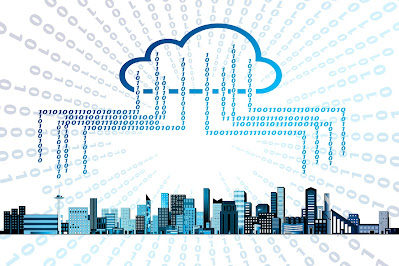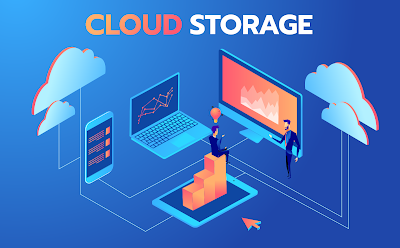How can something that sounds so good possibly have any downsides? That’s the question many people ask about cloud computing, but as with any technology solution, there are some disadvantages you should know about before you get started. The following list will cover some of the most important disadvantages of cloud computing that every business owner should know about before diving in.
💻 Table Of Contents
- What is cloud computing?
- Security risks and threats
- Privacy problems
- Third-party Risks
- Lack of Ownership issue
- Control Over Updates problems
- Stability issue
- Recovery from catastrophic events can take anywhere from several hours to several days
- Downtime can cause major losses
- Compliance issues - private data subject to regulations may not be allowed in the cloud
- Bandwidth limitations
- Data leakages
- Costs are hard to control and predict - price is always a concern
- Conclusion
What is cloud computing?
Cloud computing is the ability to access information and applications over the Internet. This means that instead of having a program installed on your computer, you can access it, or store it, on a remote server.
Cloud computing has become an essential part of business and consumer technology. However, it’s not always the best option for every situation. For example:
The cloud is useful when you need to store your data or run applications that are accessed by many users. The cloud can also be used to temporarily store data before it's uploaded to the Internet and shared with other users across the globe. This type of storage doesn't require specialized hardware; it uses resources on servers owned by a third party rather than by your own company or organization. This article discusses some of the pros and cons of using cloud computing services so you can decide if they're right for your business needs.
Although there have many advantages of cloud computing but it has downsides too. Here are some disadvantages of Cloud Computing below.
Security risks and threats
One disadvantage of cloud computing is the security risk. Since the data is stored off-site, it's more vulnerable to hacking. And if the cloud service you're using gets hacked, your data may be compromised. Additionally, there are concerns about data and information leakage as well as potential compliance issues with cloud computing. If you work in a regulated industry (HIPAA, for example), then the rules may restrict your ability to store data in the cloud.
Cloud computing is a great way to store your data, but you need to be aware of the risks. The cloud isn't a secure place to store your data. Even if you encrypt it with a strong password, anyone can still access it by breaking into the server (which has happened).
Furthermore, even though companies like Amazon and Microsoft use encryption on their servers when they send information over the internet (i.e., they encrypt the data), they do not always do so when sending emails directly from their own computers back down through their networks onto yours! This means that even if you're using encryption software on both ends—your computer as well as theirs—there's still no guarantee that someone won't be able read what's inside those emails before they reach their destination
Privacy problems
One of the risks of cloud computing is that your data may not be as private as you think. While most cloud service providers have security measures in place, there have been some high-profile breaches in recent years. This means that there is a risk that your confidential data could be accessed by unauthorized people. The problem with this is that since many companies store their sensitive data on the cloud, it can result in big problems for them if they are hacked. For example, in 2017 Equifax lost 143 million Americans' social security numbers and credit card numbers to hackers. If these employees had stored these records locally, then the information would not have been accessible to hackers and would not have resulted in such a huge privacy breach.
Third-party Risks
One of the disadvantages of cloud computing is that you are relying on a third-party to keep your data safe. This means that if their security is breached, your data could be compromised as well. Additionally, if the company goes out of business, you could lose access to your data. When using a private server, this risk doesn't exist because you have complete control over your data and who has access to it. Another problem with cloud computing is how difficult it can be to change providers. If you decide that one provider isn't working for you, switching may not be possible depending on the service contract or backup agreement in place.
Lack of Ownership issue
When you use cloud computing, you're essentially renting someone else's computer space. This can be a disadvantage because you don't own the space, so if the company that owns the servers goes out of business, your data could be lost. Additionally, if the servers are ever hacked, your data could be compromised. It's important to find a reputable company before storing any personal information on the server.
If you have a lot of sensitive data, it's always safer to store it in your own computer or on an external hard drive. If you do use cloud computing and choose to store any personal information, always back up that data onto a hard drive so that you'll have access to your files if there is ever an emergency. That way, if your company goes out of business or experiences other difficulties, you won't lose any important information.
Control Over Updates problems
One big disadvantage of cloud computing is that you don't have control over updates. The provider controls when updates occur, and they can happen at inopportune times. This can lead to downtime for your business, which can be costly. Another downside is that you may not be able to customize the applications to meet your specific needs. For example, if you use a Microsoft office suite on your desktop computer but then want to use it on a tablet device such as an iPad or an Android tablet, you won't be able to download it from the Apple App Store or Google Play store respectively.
Stability issue
One of the big problems of cloud computing is that it's not always stable. If there's an issue with the internet connection or the power goes out, you could lose access to all your files. This can be a huge problem if you're working on a deadline and suddenly lose access to your work. It also means that you might have to go back and do things again from scratch if something happens. It can also get expensive when you have to pay for someone else's mistake like electricity going out in your area. There are ways around this though! Backup files are one way to ensure that no matter what happens, your information will still be safe.
Recovery from catastrophic events can take anywhere from several hours to several days
One of the biggest risks of cloud computing is that your data is stored off-site, which means that in the event of a catastrophic event, it could take some time for you to get your data back. Even if the cloud provider has a good backup system in place, it's still going to take some time for you to get your data back - and during that time, your business will be at a standstill.
Cloud computing services are prone to outages and downtime. When there is an outage, your data will be unavailable until the problem is resolved. Outages can occur for any number of reasons, including:
- A hardware failure occurred at one of the providers' data centers
- An attack on one or more facilities by hackers or other malicious actors (e.g., DDoS attacks)
- A natural disaster such as an earthquake or fire that damages a provider's facility
- A provider going out of business or filing for bankruptcy
Cloud services are not 100% safe: When you host your data in a cloud service, you're entrusting it to someone else's physical facility. Your data is only as safe as that location is. The facility can be subject to accidents and disasters, or if an employee inside is careless or malicious.
Downtime can cause major losses
Downtime is a big risk of cloud computing. If your site or app goes down, you could lose customers, sales, and money. Even if you have a backup plan, there's no guarantee that it will work perfectly. And if your backups are also in the cloud, you could be in for a long wait before you can get your business up and running again.
It is important to note that downtime can cause major losses. The cost of downtime can be measured in several ways, including:
- Revenue loss. Customers may be unable to use your product or service because they are unable to access it at all.
- Customers leaving your company and/or not renewing their contracts with you due to poor performance or lack of availability of their products/services online (e-commerce).
- Losses from lost productivity due to data loss, e-mail delays, etc., which could lead directly into lost revenue opportunities for those companies who depend on them being able to work effectively together as a team when working remotely via cloud technology on the same project or even within similar projects where there's no physical location involved just yet but still need access somehow through apps like Skype instead since only person(s) connected through phone number will get notified about changes made by others so far :)
- Total loss, which means you lose your entire company. Yes, there are companies who have gone out of business due to downtime that wasn’t resolved in a timely manner or at all. And if you have any employees, you risk losing them because they will likely leave as well due to lack of access and inability to communicate with each other as it was supposed to be.
Compliance issues - private data subject to regulations may not be allowed in the cloud
Most countries have data privacy laws that are different from country to country. This can be a problem for companies that operate in multiple countries and want to use cloud services in each of them. If your company uses a service like Amazon Web Services (AWS), you will need to know what the local laws are so that you can comply with them when using the service.
In some cases, it may be illegal for your organization or business unit to store personal information on its own servers, as opposed to storing it on someone else's cloud infrastructure—for example if you're hiring contractors who aren't part of your company's legal structure (such as contractors working remotely).
It may also be illegal to store any data outside your own country. This is known as data sovereignty. For example, China has strict rules about where their citizens' data must be stored. If you violate these rules, you could face fines or even jail time. If your data needs to remain within one specific country, then the disadvantages of cloud computing include needing more money and manpower to manage everything internally because you won't be able to rely on third-party providers such as AWS.
It may also mean higher costs because you'll need enough storage space in one place instead of across many locations - which means purchasing more hardware locally or leasing additional space at a costlier price than an offsite provider might charge.
Bandwidth limitations
Bandwidth limitations are one of the biggest disadvantages of cloud computing. The bandwidth can be expensive, slow and unreliable. In addition, it can also be inconsistent or low in some cases.
If you do not have a good Internet connection, cloud computing is not for you. In addition, even if you have a decent connection, your bandwidth may still be slow at times. This can lead to many problems for both businesses and individuals using cloud services because data and information can be lost as a result. There could also be interruptions that could cause problems with operations and work flow. For example, if your company was running on a cloud service but had issues with its servers, this would affect all employees working remotely on that system. And, there is no guarantee that any stored files will be retrievable during an outage. A reliable network connection will go a long way in determining whether or not cloud computing is right for you. Problems with networks and their reliability are another major disadvantage of cloud computing. If you use too much bandwidth, it will cost more than just paying a monthly fee for unlimited access like when using traditional computers. Problems such as these can disrupt business operations and workflow by preventing workers from accessing critical information when they need it most.
Data leakages
When data is left unattended and without proper security, it can be vulnerable to attack. Data leakages are also known as exfiltration. A data leak is when sensitive information leaves your organization or company when you don't want it to go out into the public domain. It may be through human error, malicious software, computer failure or even natural disasters such as floods and earthquakes.
Data leakage can occur in many ways:
- Human error – This happens when people make mistakes while entering information into computers or other devices that store sensitive information (like an Excel spreadsheet). For example, employees might accidentally leave their login credentials visible on a desk top monitor where anyone could see them if they walked by during work hours; sometimes a keyboard gets unplugged from its cable so someone puts it back together wrong causing all kinds of problems with security systems; etc., etc., etc..
- Malicious software – The definition for malicious software (malware) is any program that behaves in an unwanted manner. The three most common examples are viruses, spyware and adware. These programs can include keystroke loggers that record everything you type into your computer; steal personal data such as banking account information; or take over your computer so you can’t use it anymore because a pop-up window appears on top of all other windows demanding money before it will go away.
If these problems of cloud computing haven't scared you yet, think about this one: what if somebody hacked into your cloud and deleted all your files? There's no telling how much damage would be done!
Costs are hard to control and predict - price is always a concern
Cloud computing is a pay-as-you-go service where you can only control your costs by purchasing additional resources, such as memory and processing power. Because of this, cloud computing has always been difficult for businesses to predict their costs.
For example:
- When deciding how much RAM to buy for your servers, it's easy to overspend and end up paying more than necessary because there's no way of knowing what you'll actually need until after the fact (and even then).
- If you decide that streaming movies will be part of your company culture but then don't have an internet connection available at work or home—or if someone else doesn't have access because they live in another state—you could end up paying for something that isn't used often enough for it not mattering at all!
Conclusion
Though cloud computing has a lot of advantages, there are also some disadvantages that you should be aware of before making the switch. These include data security concerns, outages, and service disruptions. Furthermore, businesses might not want to store their confidential information on the cloud because they are not able to control who can access it. In conclusion, although cloud computing is beneficial for many people, it is important to understand its disadvantages as well.







0 Comments